Win boat trip discounts and prizes! Claim your plunder here🏴☠️
Ahoy, kid sailors save 20%! grab yer treasure today! book your adventure now!
Win boat trip discounts and prizes! Claim your plunder here🏴☠️
Ahoy, kid sailors save 20%! grab yer treasure today! book your adventure now!
The UK is home to 38% of the global population of grey seals – they are a globally rare species. Despite doing well here, there are fewer grey seals in the UK than red squirrels.
Seals spend most of their time at sea feeding, but they need to return to land to rest and breed. We can often see seals ‘hauled-out’ on Cornish beaches. The hauling out process is vital for seals to restore energy and oxygen levels, digest their food, socialise, feed their pups and warm up after their strenuous foraging trips. Seals are ‘opportunistic feeders’ they feed on a wide range of things from fish to crustaceans or squid/octopus. They are incredible divers, capable of reaching up to 400m and holding their breath for over an hour. On average though they forage at approximately 70m looking for their favourite prey, sand eels and dragonets. Pups are born in the autumn with fluffy white coats called ‘lanugo’. They need this coat to keep them warm until they build up an insulating blubber layer from their mother’s milk. They stay on land for around three weeks until they have tripled in body size and no longer need their lanugo.
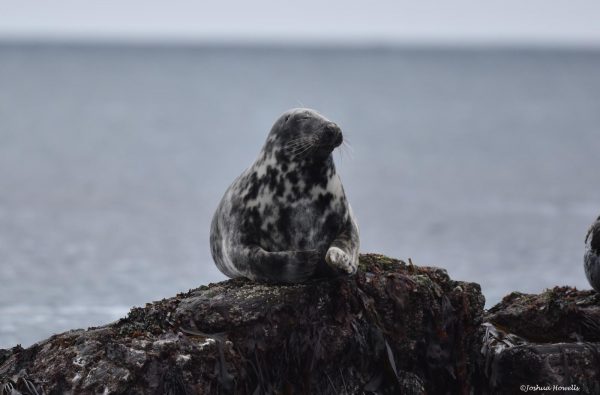
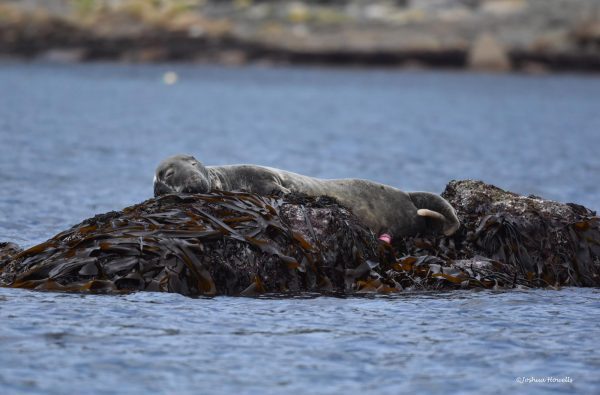
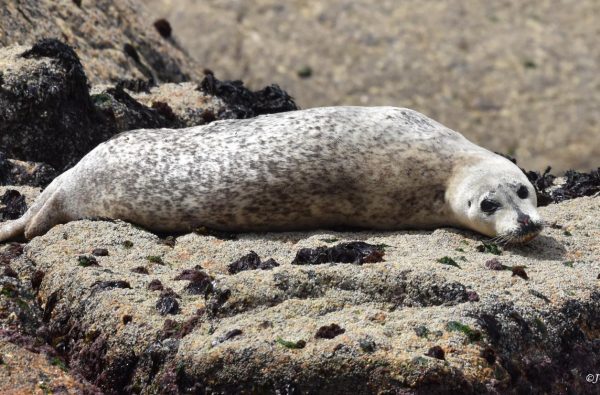
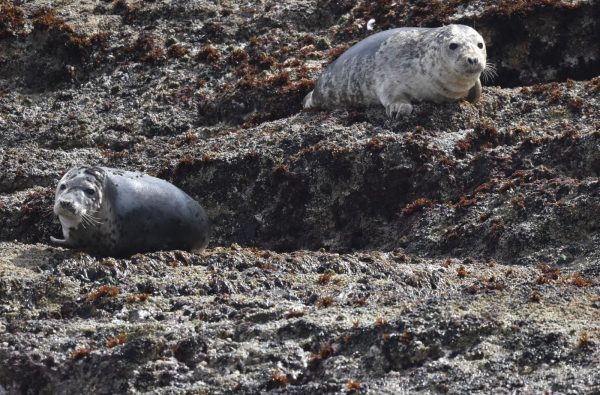
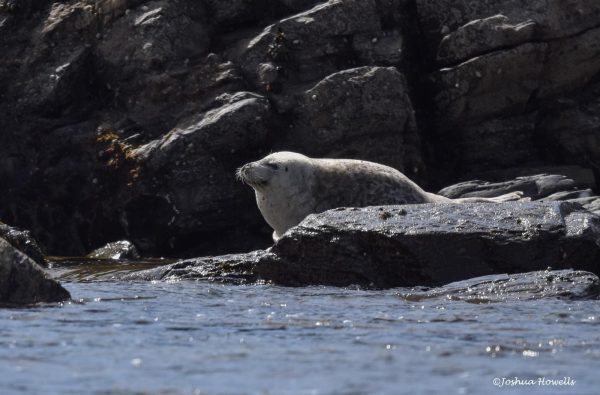
Book your Coast Boat Trip for the marine life experience of a lifetime!
There are two seal species here in Cornwall, the grey seal (halichoerus grypus) and the common seal (phoca vitulina). Ironically though, the common seal is not common in Cornwall! The predominant species is the grey seal, whose Latin name means “hook-nosed sea pig”, and if you get close enough you can see why! They have a very distinctive sloping “roman” nose with parallel nostrils (rather than the V-shape of common seals).
Seals are present all around the Cornish coast looking for food and hanging out in hidden coves, but the best chances of spotting them are at and around their haul-out sites. Mutton Cove at Godrevy point is an established colony which never disappoints!
Seals are a year-round presence in Cornwall. However, the best time of year is during the breeding season, beginning in autumn, around mid-September and by January, haul-outs can reach over a hundred strong!
Seals are generally gentle creatures as long as they don’t feel threatened. They are inquisitive, playful animals who explore with their mouths. Youngsters especially enjoy play fighting. But, seals are robust, a playful nip or scratch could easily cause harm so swimming with seals is not encouraged. Also, we don’t want seals to habituate to human presence as it reduces their natural fear of humans which protects them from dangerous interactions with fishing boats increasing their risk of entanglement. We take all measures to ensure we don’t disturb the natural activities of the seals and keep any interactions on their terms.